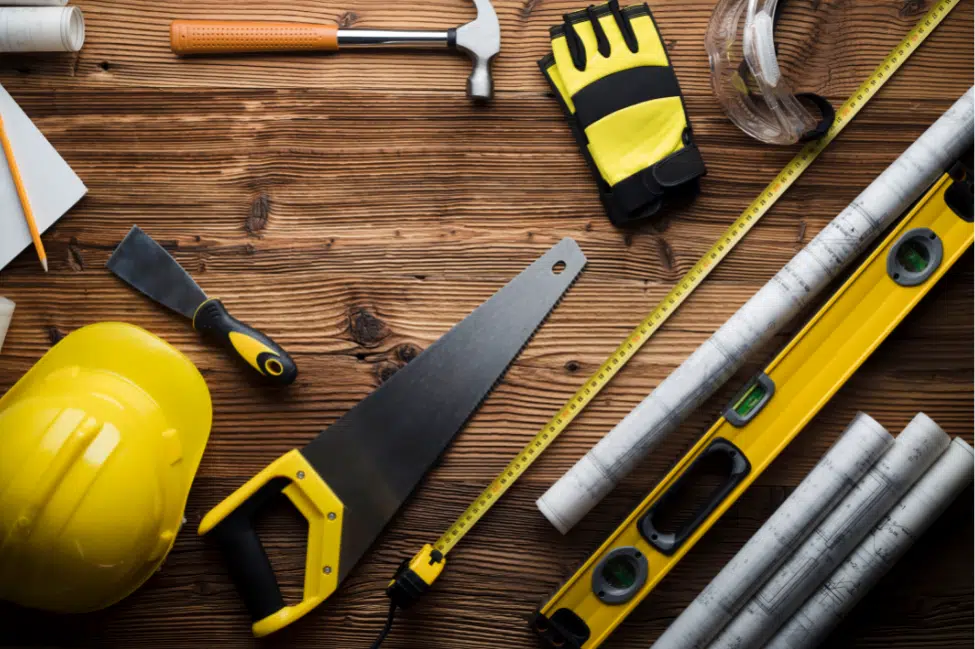Whether you need repairs, remodeling or renovations, as a homeowner it is important to know who to call for which jobs. Quite often we hear the titles handyman and general contractor thrown around very loosely and even interchangeably sometimes. While they are both professionals that you pay to help keep you home in order, the jobs they do and the training required are not as similar as you might think.

Today, we will take a look at the jobs the general contractor and handyman do, at what the differences are and how to tell which one to hire for which job.
Handyman Vs. General Contractor
The jobs of a handyman, a general contractor and a contractor all seem to intersect inside your home, but in many ways they couldn’t be more different. Let’s take a look at each job.
The Handyman
In many states, almost anyone can call themselves a handyman. In Utah, you do not need a license or to register as a handyman unless you work on jobs valued at more than $1,000. You simply need to register your business to work on jobs upto $3000.
This helps to demonstrate that the handyman normally works on smaller jobs that do not involve licensing. Some common jobs handyman might be hired for include:
- Cleaning and repairing gutters
- Repairing an appliance
- Cutting a lawn
- Removing a bush
- Repairing a small leak
- Replacing a window
The General Contractor
A general contractor does not perform repairs personally. They are licensed professionals who oversee a construction or remodeling project. As a result they coordinate all of the different entities, such as vendors and subcontractors who are working on a project. They are project managers.
In the state of Utah, a contractor must pass a state issued exam after fulfilling a specific number of hours of classroom work and a specific number of hours of experience. In addition, any jobs valued over $3,000, in Utah, require a contractor’s license. Some jobs that commonly call for a general contractor are:
- Oversight of new home construction
- Oversight of full home remodel
- The Oversight of full home renovation
- Oversight of an extensive kitchen remodel with custom elements

Licensed Contractors
Firstly, almost all contractors are required to carry some kind of license and a specific type and amount of insurance. Aside from general contracting, there are other types of contractors who often work on new home construction and home remodeling. For example, these contractors include:
- Electricians
- Plumbers
- HVAC Technicians
- Carpenters
- Cabinet Makers
- Roofers
- Home Builders
Subcontractors
You might be left wondering, then, what is a subcontractor? A subcontractor is any of the contractors hired by the general contractor to carry out the work needed to finish a project.
Who Should You Hire?
If you are unsure who you should hire for what job, first consider the value of the job. There are state laws that apply, so depending on the amount, a handyman may not even be a legal option. Next, consider whether the person you are hiring should be licensed. If you are not sure, a good rule of thumb is that if a job could be dangerous, or involves electricity or any of your utilities, you should call a licensed contractor.
Another way to look at it is that a handyman does small jobs that can be done by a single person and don’t require any specialized knowledge. If you are unsure or want to be guaranteed higher quality of work, you are better off calling a contractor.
Need a Handyman or Contractor in Utah?
If you were searching for a “contractor near me,” in Utah County, don’t hesitate to call Allied Remodeling Contractors! We can help with your home building or remodeling project, no matter what stage you happen to be in.


 Finding the absolute best Bathtub for your Updated Bathroom
Finding the absolute best Bathtub for your Updated Bathroom